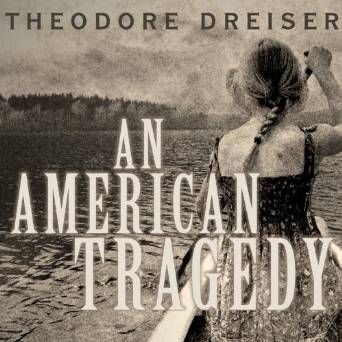Two Very American Tragedies
Watching ESPN’s "OJ: Made In America," I thought of Theodore Dreiser's "An American Tragedy."
By Laurie WinerJune 23, 2016

Watching ESPN’s searing documentary O.J.: Made In America, I thought of An American Tragedy, which I’m going to say is Theodore Dreiser’s greatest novel because it might be true. That O. J. Simpson saw himself as Coalhouse Walker Jr. from Ragtime (he auditioned for the role for the film, and said he identified with him) — when he was really Bill Sikes from Oliver — struck me as the kind of detail we might read about Clyde Griffiths, Dreiser’s protagonist, a detail that is equal parts aspiration and delusion. Writing in 1925, Dreiser based Griffiths on Chester Gillette, the defendant in a murder trial that obsessed him and most of the country in 1906. Like Gillette, Griffiths had the looks and the ambition to maneuver upward in a time that otherwise afforded remarkably little mobility for people like him. His parents were street preachers, social undesirables, but his uncle was a wealthy factory owner who had enough compassion to give him an entry-level position, but not so much as to welcome him into the family. Eventually promoted and placed in charge of young women workers with whom he was told not to consort, watching his rich cousins and their glamorous girlfriends, Clyde remained frozen in loneliness, stuck between two lives, the rich one he desperately wanted and the other he would settle for. He begins to secretly date a factory girl named Roberta. At the same time a dazzling young society woman named Sondra notices Clyde even as his own cousins are doing their best to ignore him. Clyde’s prospects with Sondra look golden just as Roberta finds herself pregnant. After considering abortion, which is of course illegal and difficult for a girl with no connections to arrange, Roberta insists that Clyde marry her. What follows is the kind of story that seems steeped in inevitability even as you’re internally yelling at the protagonist to take another, any other, path. Musician and actor Dan John Miller does an admirable job reading the book for Audible; he underlines how Clyde’s constant rationalization of his worst impulses drive the plot mercilessly toward murder. At the intersection of character and social forces lie the worst disasters — as these two very American tragedies show so clearly.
--
LARB Contributor
Laurie Winer is a Los Angeles Review of Books founding editor.
Did you know LARB is a reader-supported nonprofit?
LARB publishes daily without a paywall as part of our mission to make rigorous, incisive, and engaging writing on every aspect of literature, culture, and the arts freely accessible to the public. Help us continue this work with your tax-deductible donation today!